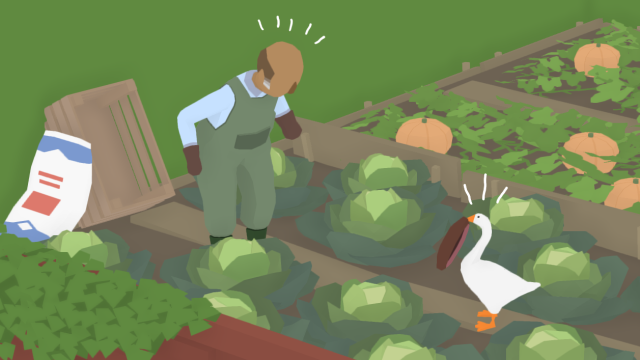With so many industries absolutely ravaged by the COVID pandemic, particularly live entertainment, tourism and hospitality, it’s unsurprising that video games was one of the few Australian industries that enjoyed success in 2020.
The writing was on the wall to a degree. 2020, after all, saw the launch of the Xbox Series X, Series S, the PlayStation 5, Nvidia’s second crack at real-time ray tracing GPUs and a string of successful CPUs and GPUs. But the trend line for Australia’s gaming industry has been surging upwards regardless of COVID, according to the latest Australian Entertainment Media Outlook report from PwC.
For several years, the report has analysed the impact of the Australian gaming sector and esports, although the latter has only been assessed separately more recently. And in the latest report, PwC found that Australians are “one of the highest per capita spenders on video games in the world”, with the total gaming and esports revenue hitting $3.175 billion in 2019 and $3.403 billion in 2020.

We’ll know what the final figure is next year, but right now the PwC website is putting 2020’s total gaming and esports revenue at $3.4 billion, a rough 7 per cent improvement year on year. But what’s probably more worthwhile tracking is the trajectory for gaming in a post-COVID world.
Interestingly, PwC doesn’t see mobile gaming as a massive amount of growth over the next few years. While microtransactions continue to do well — Australians are expected to spend $1.565 billion on in-game purchases by 2024 –PwC feels the market is completely saturated:
There is little room for incremental growth in the addressable market of smartphone owners in Australia. There is a sense that the mobile games market has begun to be over-reliant on a handful of mega-earners like Clash of Clans and Game of War, which have now been on the market for many years.
It’ll be interesting to see what Project xCloud could d0 in this context, and how well titles like League of Legends: Wild Rift do. Mobile gaming accounted for 31.7 percent of all video games consumer revenue in Australia in 2019, so it’s one of the biggest chunks of the gaming market regardless.
Australians love buying consoles and console games, according to PwC, and the Switch has been particularly successful in a portable console market that many had little faith in. PwC also sees the PS5 and Xbox Series X having success, not just as products but with the higher premiums being charged — even though video games in Australia are already “among the highest priced in the world”:
Meanwhile, Sony and Microsoft have continued to release incremental upgrades to their existing home consoles. Both have now gone one step further announcing the launch of the PlayStation 5 and Xbox Series X respectively, which will come in both traditional and digital formats. These upgrades have been mooted for some time and early indications are that the enhanced user experience will justify the hefty price tag for avid gamers.
Esports continues to a miniscule part of the Australian gaming diaspora, however. While the sector weathered COVID-19 well, live events are also a cornerstone of esports revenue in Australia.
At best, PwC believes Australia’s total esports revenue could reach $12 million by 2024. That’s their best case scenario, with the sector generating $5 million in revenue in 2019. Growth in 2020 has been good regardless — $6 million in 2020 — but PwC expects that “future growth [in Australian esports] is expected to be at a slower rate than in many markets of a similar size”. It’s a stark difference from a few years ago, where PwC projected esports could cap out at $21 million by 2022, with a more conservative growth estimate of $9 million.

The key question PwC really has — and most of the industry — is whether the change in behaviour over COVID will stick in the short to medium term. Gaming is already one of Australia’s most popular hobbies, but the last several months has seen hundreds of thousands of Australians reconnect with gaming in some way.
“With more mature audiences increasingly taking up technology, they’re also discovering the power of games to help bridge face-to-face connections and maintain cognitive function with a range of strategy games,” Sydney University cyberpsychology researcher Jocelyn Brewer said last year.
With families also gaming as a shared activity — Fortnite lobbies, games of Among Us or other co-op experiences — it’s likely to expect that young Australians growing up will continue to game at a higher rate than generations before them. Even if they don’t, gaming is certainly vastly more normalised than it was 20 or 30 years ago.
Gaming is only getting bigger in Australia, although the industry still doesn’t enjoy the same widescale support federally. “Video games have a huge economic and social impact today but are often overlooked in Canberra,” Tim Watts, the Shadow Assistant Minister for Communications and Cybersecurity, told Kotaku Australia over email during the launch of the bipartisan parliamentary group for video games.
“Some politicians are afraid to truly embrace the industry for fear of being seen as trivial for spending their time on something that some still stereotype as a hobby for teenage boys,” Watts said. “We need to break those stereotypes in the minds of MPs and show that gaming isn’t just a truly mainstream industry, but it’s also a massive job creation opportunity for Australia.”
“The economy and job creation is a big focus for most MPs at the moment. We need to help policy makers think about the Australian video game industry in that context.”
A Creative Economy Summit is being held by Labor sometime this year to discuss the potential of maximising job creation in future industries, and Watts confirmed that the video game industry would be included in that conversation. But will both sides of parliament take the conversation seriously?

Leave a Reply